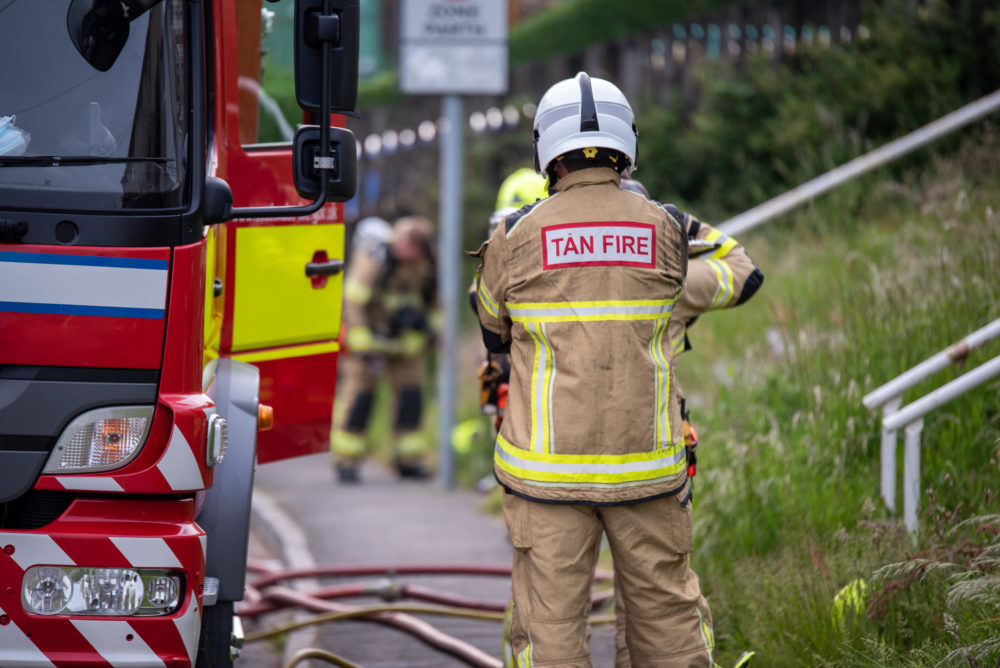Fire Service to stop attending automatic alarm callouts

Richard Youle Local Democracy Reporter
A fire service won’t attend automatic fire alarm call-outs from commercial and public sector buildings from July onwards unless an actual fire has been reported.
Mid and West Wales Fire chiefs said the change will free up resources and they had taken steps to communicate it to organisations which would be affected.
Some premises have fire alarms which don’t trigger a response from the fire service. But many premises have automatic fire alarms which do trigger a fire service response via a receiving centre.
False alarms
Mid and West Wales Fire Service said statistics showed that the majority of signals from these systems were false alarms triggered by things such as cooking fumes, dust, or inadequate maintenance.
Area manager and head of corporate risk, Peter Greenslade, said: “As a service we attend in excess of 2,000 alarm actuations in commercial buildings every year with over 99% of these calls being false alarms.
“This disrupts the community safety work that the service can deliver, operational training for crews, and introduces environmental and road risks that are unnecessary. Additionally the businesses themselves are impacted due to the disruption caused.”
Fire crews generally don’t travel to automatic fire alarms on blue lights and dealing with these call-outs can take up to an hour in some instances. Mr Greenslade said most automatic fire alarms emanated from hospital, local authority, and education buildings.
Mr Greenslade said: “It is important that commercial premises take ownership of false fire alarms within their premises as is their legislative duty. We will of course always respond to 999 calls when people have identified that there is a fire.”
The fire service, which covers Swansea, Neath Port Talbot, Carmarthenshire, Powys, Pembrokeshire, and Ceredigion, stressed it would continue to attend automatic fire alarms from residential properties, nursing and care homes, premises subject to fire safety prohibition or enforcement notices, and also boarding schools.
Consultation
A spokeswoman said a consultation about its proposed change had taken place via a wider community risk management plan and it had written to the 100 premises which triggered the most automatic fire alarms. Meetings were offered to health boards, councils, and universities and the change has also been approved by Mid and West Fire Authority, which scrutinises the service.
Mr Greenslade said: “The majority of companies don’t activate alarms into a receiving centre – for those that do they need to factor this (change) into their fire risk assessment.”
The Local Democracy Service asked Swansea and Carmarthenshire councils if they were reviewing their fire safety processes for schools, especially during night-time hours, when they were empty.
A Swansea council spokesman said: “We are aware of the changes being proposed by the fire service and are discussing the matter with them.
“The council will continue to work with the service and our schools to ensure that schools and other public buildings in Swansea continue to have the highest possible standard of safety both while occupied and out of hours.”
Jason Jones, Carmarthenshire council’s property maintenance manager, said it had robust fire safety processes, including out-of-hours arrangements, and that it had had extensive discussions with fire chiefs about the change coming into effect on July 1.
He said the council has formed a dedicated task and finish group with this in mind, adding: “This group will work to integrate the new measures within the existing processes of the council ensuring a comprehensive and proactive approach to safety management.”
Support our Nation today
For the price of a cup of coffee a month you can help us create an independent, not-for-profit, national news service for the people of Wales, by the people of Wales.






